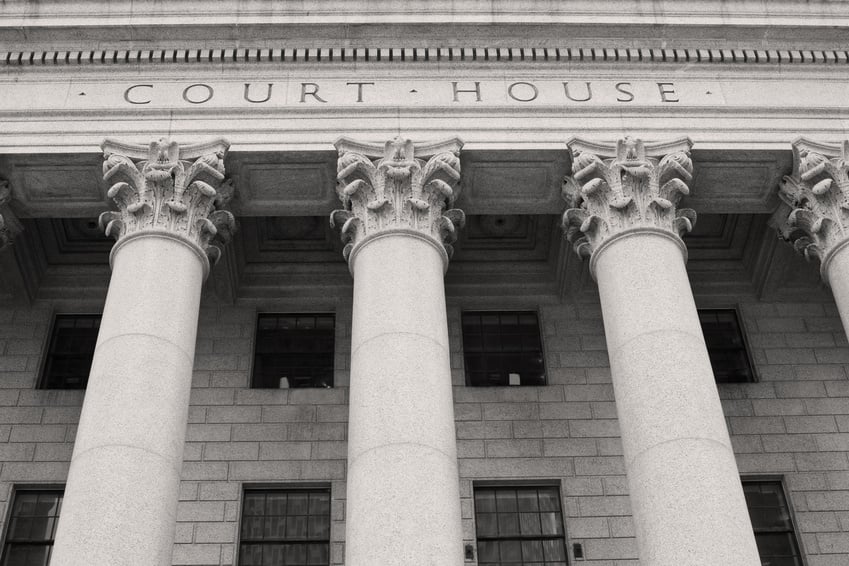On August 23, 2017, the Second Circuit issued a 2-1 opinion overruling its previous decision in U.S. v. Newman, which required proof that gifts of inside information were made to those with a “meaningfully close personal relationship” with the tipper before insider trading liability could be imposed. In U.S. v. Martoma, the Second Circuit interpreted the Supreme Court’s decision in Salman v. U.S. as endorsing the view that a corporate insider personally benefits whenever he discloses inside information as a gift expecting it to be used as a basis for trading or other personal gain, regardless of whether a meaningfully close personal relationship exists between the insider and recipient of the information. However, because the Salman Court did not specifically overrule the relationship test enunciated in Newman, and because the Martoma decision is not unanimous, the Second Circuit may well decide to convene an en banc panel to reconsider the question of the continuing vitality of the limiting test announced in Newman.
Factual Background
Mathew Martoma worked as a portfolio manager at a hedge fund, S.A.C. Capital Advisors, LLC (“SAC”) owned and managed by Steven A. Cohen. Martoma hired an expert consultant, Dr. Sidney Gilman, who was on the safety monitoring committee of the trial for a drug being developed by two pharmaceutical companies to treat Alzheimer’s disease. As a member of the committee, Dr. Gilman was obligated to keep the results of the clinical trial confidential. Martoma paid Dr. Gilman $1,000 an hour for approximately 43 consultations related to the clinical trials. During his consultations with Martoma, Dr. Gilman provided confidential updates on the drug’s safety, which he learned during safety monitoring committee meetings. Notably, when Dr. Gilman was provided the final results of the trial, he discussed the results in detail with Martoma during two consultations. No evidence was presented showing that Dr. Gilman was paid for these two consultations. Martoma and Cohen spoke shortly thereafter, and SAC immediately began to reduce its position in the pharmaceutical companies’ securities. When Dr. Gilman publicly presented the trial results a week later, the stock prices dropped significantly. Martoma and Cohen’s earlier trades resulted in approximately $80.3 million in gains and $194.6 million in averted losses for SAC. Martoma received a $9 million bonus based largely on the trading activity at issue. Martoma was convicted, following a four-week jury trial, of several counts of conspiracy to commit securities fraud and securities fraud in the form of insider trading. On appeal, Martoma challenged the sufficiency of the evidence supporting the conviction as well as the failure to include the Newman “meaningfully close personal relationship” test in the jury instructions.
Supreme Court and Second Circuit Precedent
In Dirks v. S.E.C., the Supreme Court held that a tippee’s liability for insider trading hinges, in the first instance, on whether the tipper had breached a fiduciary duty by disclosing the information. Dirks noted that a tipper breaches his fiduciary duty if he discloses inside information in exchange for a “personal benefit.” Dirks also held that a jury could infer a personal benefit when a tipper makes a gift of confidential information to a “trading relative or friend.”
The Second Circuit addressed the gift-giving analysis of Dirks in Newman, which involved remote tippees who were unrelated to the original tipper. The Newman court held that a tipper can be inferred to have received a “personal benefit” from a tip to a family member or friend only if the tip was (1) to person with whom the tipper had a meaningfully close personal relationship, and (2) that resulted in an “exchange that is objective, consequential, and represents at least a potential gain of a pecuniary or similarly valuable nature.” The court further held that the government was required to prove that the tippees knew the information on which they traded came from insiders that received a personal benefit in exchange for the tips.
Late last year, focusing on the language of Dirks, the Supreme Court held, in Salman, that a close family relationship shared by an insider and a tippee is sufficient to establish a personal benefit necessary to establish insider trading. However, the Salman Court addressed the Second Circuit’s decision in Newman and expressly disapproved of any requirement, to the extent Newman intended there to be one, that a tipper must “also receive something of a ‘pecuniary or similarly valuable nature’ in exchange for a gift to family or friends,” finding any such requirement inconsistent with its holding in Dirks. Notably, the Court did not expressly address Newman’s requirement of a “meaningfully close personal relationship” for the inference of a personal benefit.
The Second Circuit’s Decision
The Second Circuit, in Martoma, held that because Salman “fundamentally altered” Newman’s “meaningfully close personal relationship” requirement for inference of a personal benefit from a gift of inside information, the panel had authority to overrule Circuit precedent without considering the case en banc. Initially, the court rejected Martoma’s argument that the evidence was insufficient to support his conviction. The court, relying on Newman for the proposition that “the tipper’s gain need not be immediately pecuniary,” held that Dr. Gilman’s frequent and lucrative consultations with Martoma, wherein Dr. Gilman provided confidential information in exchange for fees, could allow a rational jury to find the elements of insider trading under a pecuniary quid pro quo theory, even though Dr. Gilman was not paid for the two consultations in which he provided the final clinical trial results that led to the trading at issue.
The court then turned to Martoma’s challenge to the jury instruction that provided that the jury could find a personal benefit if inside information was given “as a gift with the goal of maintaining or developing a personal friendship or useful networking contact.” Under Dirks, Martoma argued, the personal benefit necessary to establish insider trading liability can be inferred only from a gift of inside information “to a trading relative or friend.” Further, under Newman, such an inference was not permitted unless there was proof of a “meaningfully close personal relationship.” Martoma also argued, before the Salman decision was issued, that the instruction was deficient because it did not require that Dr. Gilman to have received anything of a “pecuniary or similarly valuable nature.” Because Salman expressly overruled the portion of Newman establishing this requirement, the Martoma court focused on the relationship required for application of the gift-giving theory under Dirks and Newman.
The court held that “the straightforward logic of the gift-giving analysis of Dirks, strongly reaffirmed in Salman, is that a corporate insider personally benefits whenever he ‘disclos[es] inside information as a gift . . . with the expectation that [the recipient] would trade’ on the basis of such information or otherwise exploit it for his pecuniary gain.” Thus, while dispensing with the requirement of any personal or familial relationship, the court emphasized the importance of the insider’s expectation of the use of the information. The court held that, where an insider provides information with the expectation that it will be traded upon, the insider receives the “imputed pecuniary benefit of having effectively profited from the trade oneself and given the proceeds as a cash gift,” thereby satisfying the personal benefit requirement of Dirks.
Accordingly, the court held that the district court’s jury instruction accurately conveyed the elements of insider trading, though it did not include Newman’s “meaningfully close personal relationship” requirement. The court further held that even if the jury charge were erroneous, it did not impact Martoma’s substantial rights in light of the “compelling evidence” of a quid pro quo relationship between Dr. Gilman and Martoma.
The Dissent
Judge Pooler’s dissent emphasized the importance of the “personal benefit” test in Dirks in limiting liability to those “who ‘take[] advantage’ of inside information to make ‘secret profits,’” because it is the only element of an insider trading claim that does not center on an individual’s state of mind. Judge Pooler noted that, in Salman, the Supreme Court repeatedly limited its statements about the gift-giving theory to situations where the gift is given to a “trading relative or friend,” as the theory was originally expressed in Dirks. In addition, the Salman Court expressly considered—and declined to adopt—the government’s position, which mirrors the Martoma majority’s holding, that “a gift of confidential information to anyone, not just a ‘trading relative or friend,’ is enough to prove securities fraud.” Therefore, Judge Pooler argued that Newman’s “meaningfully close personal relationship” test follows Dirks, was not overruled by the Salman Court, and should remain good law in order to appropriately limit insider trading liability.
Conclusion
Martoma increases the scope of potential liability by expanding the rule of when a “personal benefit” can be inferred by a gift of inside information. Under Dirks and Newman, a gift giving rise to an inference of a personal benefit could only be made to a “trading friend or relative” or a person with whom the tipper had a “meaningfully close personal relationship.” Under Martoma, a “personal benefit” could potentially be inferred from a “gift” of inside information to anyone, regardless of the relationship, if any, between the insider and recipient provided the necessary intent to benefit is found. This shift could result in more frequent and aggressive prosecution of criminal charges and civil claims in a broader class of tipper/tippee cases.
Because the Martoma decision was decided by a split panel and overrules the “meaningfully close personal relationship” test from the Newman decision that was not addressed by the Supreme Court in Salman, the Second Circuit could decide to convene an en banc panel to reconsider the case. If the Court does not consider the case en banc, the Supreme Court may be interested in directly addressing the “meaningfully close personal relationship” test, though the fact that the jury instruction itself may be harmless error due to the business relationship between Dr. Gilman and Martoma could dissuade the Supreme Court from taking the case.



